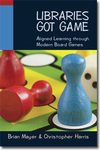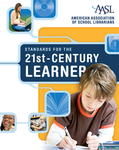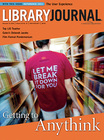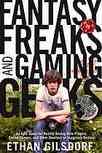General Resources
Bringing Gaming (and Gamers) to Your Library: 100 Tips and Resources. Online Education Database 22 July 2008. Online. 28 Nov. 2010.
<http://oedb.org/library/features/bringing_gaming_100_library_resources>.
Looking for advice on how to set up gaming in your library? Look no further! This site has 100 tips and resources specifically for gaming in libraries.
<http://oedb.org/library/features/bringing_gaming_100_library_resources>.
Looking for advice on how to set up gaming in your library? Look no further! This site has 100 tips and resources specifically for gaming in libraries.

Danforth, Liz. "Why Game?" Library Journal. 15 May 2009. Online. 28 Nov. 2010. <http://www.libraryjournal.com/lj/ljinprintcurrentissue/854905-403/why_games.html.csp/>.
Searching for points to present when advocating for gaming programs? Liz Danforth has a bunch! Here's a quick article that makes the case for gaming in libraries.
Searching for points to present when advocating for gaming programs? Liz Danforth has a bunch! Here's a quick article that makes the case for gaming in libraries.
Danforth, Liz. "Gaming and Literacy" Library Journal. 15 June 2009. Online. 28 Nov. 2010. [on LISTA database].
Advocating to get a game collection in the library? This short article highlights the different ways that games (video, board, online and RPGs) get kids reading real books.
Advocating to get a game collection in the library? This short article highlights the different ways that games (video, board, online and RPGs) get kids reading real books.
"Gaming in Libraries Podcasts" Online. 28 Nov. 2010. <http://www.gamesinlibraries.org/>.
These podcasts are sponsored by the ALA's Gaming and Gamers and the Library Game Lab of Syracuse. A variety of commentators discusses games, gaming and how libraries can fit in too!
These podcasts are sponsored by the ALA's Gaming and Gamers and the Library Game Lab of Syracuse. A variety of commentators discusses games, gaming and how libraries can fit in too!
Lipschultz, Dale et. al. The Librarian's Guide to Gaming: an Online Toolkit for Building Gaming @ your Library. Online. 28 Nov. 2010. <http://librarygamingtoolkit.org/advocacy.html/>.
This extensive website attempts to cover every question or concern that librarians might have regarding gaming programs. The website boasts of having "all the things you need to help you with creating a gaming experience @ your library, from advocating to evaluating." Notable sections discuss: advocacy, literacy, budgeting, readiness, evaluation, publicity, facility issues.
This extensive website attempts to cover every question or concern that librarians might have regarding gaming programs. The website boasts of having "all the things you need to help you with creating a gaming experience @ your library, from advocating to evaluating." Notable sections discuss: advocacy, literacy, budgeting, readiness, evaluation, publicity, facility issues.

Nicholson, Scott. Everyone Plays at the Library: Creating Great Gaming Experiences for All Ages. Medford, NJ: Information Today. 2010.
The field expert on libraries and gaming, Scott Nicholson, wrote this manual that explains the importance of games programming in libraries. From video games to RPGs to table top competitions, Nicholson highlights best practices and gives foundational advice for librarians looking to start up gaming programs.
The field expert on libraries and gaming, Scott Nicholson, wrote this manual that explains the importance of games programming in libraries. From video games to RPGs to table top competitions, Nicholson highlights best practices and gives foundational advice for librarians looking to start up gaming programs.
Nicholson, Scott. (2007). The Role of Gaming in Libraries: Taking the Pulse. White paper available online at <http://boardgameswithscott.com/pulse2007.pdf/>.
Nicholson's survey establishes how libraries are supporting games and gaming programs throughout the United States. A random sample of 400 libraries were surveyed to assess the current popularity of the gaming trend.
Nicholson's survey establishes how libraries are supporting games and gaming programs throughout the United States. A random sample of 400 libraries were surveyed to assess the current popularity of the gaming trend.
Research Quest. Apr. 2005. Online. 28 Nov. 2010. <http://researchquest.blogspot.com/>.
Although not specific to libraries, Research Quest is a blog that discusses educational uses for games. It also focuses on different learning, teaching, and gaming strategies.
Although not specific to libraries, Research Quest is a blog that discusses educational uses for games. It also focuses on different learning, teaching, and gaming strategies.

Scordato, J. "When the shine wears off, the results are still golden." School Library Journal (January 1, 2010).
Julie Scordato highlights the development of a library game collection at the Columbus Metropolitan Library, Ohio and offers hints and suggestions about how to advocate for teen spaces and gaming programs.
Julie Scordato highlights the development of a library game collection at the Columbus Metropolitan Library, Ohio and offers hints and suggestions about how to advocate for teen spaces and gaming programs.
Board Games Resources
"Board Game Geek" Online. 28 Nov. 2010. <http://www.boardgamegeek.com/>.
Board Game Geek is an online board game resource and community. Get game reviews and ratings, find rule translations, keep track of tournaments, and chat with other gamers at this comprehensive site.
Board Game Geek is an online board game resource and community. Get game reviews and ratings, find rule translations, keep track of tournaments, and chat with other gamers at this comprehensive site.
"Games for Educators" Online. 28 Nov. 2010. <http://www.g4ed.com/>.
Sponsored by the Chicago Toy and Game Fair and Live Oak Games, this site has game reviews, hints for teachers and educators as well as a host of discussions about the educational impact and importance of games and gaming. With a staff of writers posting a newsletter each month, this site is very current and even has a section 'For Librarians'.
Sponsored by the Chicago Toy and Game Fair and Live Oak Games, this site has game reviews, hints for teachers and educators as well as a host of discussions about the educational impact and importance of games and gaming. With a staff of writers posting a newsletter each month, this site is very current and even has a section 'For Librarians'.
Harris, Christopher. "Meet the New School Board." School Library Journal. May 2009, Vol. 55 Issue 5, p 24-26.
This article looks at the benefits of using games within school curricula. It also gives a lot of helpful advice for school librarians (or librarians in general) who would like to enhance the gaming collection in their library.
This article looks at the benefits of using games within school curricula. It also gives a lot of helpful advice for school librarians (or librarians in general) who would like to enhance the gaming collection in their library.

Mayer, Brian and Christopher Harris. Libraries Got Game: Aligned Learning Through Modern Board Games. Chicago: ALA. 2009.
Advocating for a game program will never be easier after reading this book. With a quick and easy historical run-down of games and gaming as well as practical advice for libraries and librarians, this manual highlights how gaming is a library must-do! The "Best Games" lists broken down by age group is yet another invaluable resource in this book.
Advocating for a game program will never be easier after reading this book. With a quick and easy historical run-down of games and gaming as well as practical advice for libraries and librarians, this manual highlights how gaming is a library must-do! The "Best Games" lists broken down by age group is yet another invaluable resource in this book.
Nicholson, Scott. "Board Games with Scott" Online. 28 Nov. 2010. <http://www.boardgameswithscott.com/>.
Scott Nicholson's video blog demonstrates different types of table top games and introduces different game genres. These videos can help you learn games quickly (and not have to read the fine print in the rulebooks).
Scott Nicholson's video blog demonstrates different types of table top games and introduces different game genres. These videos can help you learn games quickly (and not have to read the fine print in the rulebooks).
Rosenfeld, Alvin. "The Benefits of Board Games." Parent & Child. Online. 29 Nov. 2010. <http://www2.scholastic.com/browse/article.jsp?id=2060>.
This article looks primarily at the benefits of playing games with young children. It emphasizes the social skills children can learn from playing board and tabletop games. The list of age appropriate game suggestions at the end is also helpful.
This article looks primarily at the benefits of playing games with young children. It emphasizes the social skills children can learn from playing board and tabletop games. The list of age appropriate game suggestions at the end is also helpful.
Online Games Resources
"Generation M2: Media in the lives of 8- to 18-year-olds." Kaiser Family Foundation. 20 Jan. 2010. Online. 28 Nov. 2010. <http://www.kff.org/entmedia/mh012010pkg.cfm/>.
Kaiser Family Foundation sponsored this large-scale survey of young people's media use. The survey highlights how much time the current generation is engaged in online entertainment.
Kaiser Family Foundation sponsored this large-scale survey of young people's media use. The survey highlights how much time the current generation is engaged in online entertainment.
"How to Host a LAN Party." wikiHow. Online. 28 Nov. 2010. <http://www.wikihow.com/Host-a-LAN-Party/>.
This wiki provides comprehensive, step-by-step advice on how to host a LAN party. Although not specific to libraries, the information provided in this article can be utilized in home or institutional settings.
This wiki provides comprehensive, step-by-step advice on how to host a LAN party. Although not specific to libraries, the information provided in this article can be utilized in home or institutional settings.

Martin, Justine. "Power up! Using digital gaming techniques to enhance library instruction." Internet Reference Services Quarterly 13.2-3 (2008): 209-225.
This article gives definitions of different types of gaming including online games. It also describes the connections between gaming, literacy, library instruction, and learning. According to the author students and teenagers today, " expect entertainment, engagement, and variety in their learning."
This article gives definitions of different types of gaming including online games. It also describes the connections between gaming, literacy, library instruction, and learning. According to the author students and teenagers today, " expect entertainment, engagement, and variety in their learning."

Standards for the 21st Century Learner. Chicago: ALA. 2007.
For more information about how online games educate and prepare teens, this American Library Association publication is a must for school or public librarians advocating for gaming programming in their institutions. This book highlights new forms of literacy and their importance in the modern world.
For more information about how online games educate and prepare teens, this American Library Association publication is a must for school or public librarians advocating for gaming programming in their institutions. This book highlights new forms of literacy and their importance in the modern world.
RPG Resources
Bebergal, Peter. "How D&D taught me to use the library" Online. 28 Nov. 2010. <http://www.wizards.com/default.asp?x=dnd/library/>.
Peter Bebergal discusses how his RPGs got him into the library and reading books. This PDF comes complete with a reading list that any avid D&D fan will find interesting and inspiring.
Peter Bebergal discusses how his RPGs got him into the library and reading books. This PDF comes complete with a reading list that any avid D&D fan will find interesting and inspiring.

Blackmoor, Brandon. "The RPG Library" April 2000. Online. 28 Nov. 2010. <http://www.rpglibrary.org/>.
This online archive of free and downloadable RPG rules and games as well as the related forum and wiki for gamer discussions, advice and questions is a great place to start finding library-friendly materials. Links are not often updated, however, so not all the listed games will be readily available!
This online archive of free and downloadable RPG rules and games as well as the related forum and wiki for gamer discussions, advice and questions is a great place to start finding library-friendly materials. Links are not often updated, however, so not all the listed games will be readily available!
"D&D Materials for your Library" Online. 28 Nov. 2010. <http://www.wizards.com/default.asp?x=dnd/library/>.
Need a beginner's guide to setting up a D&D program at your library? This step-by-step guide will get you on the right path. Most of the information is basic (advertise, buy snacks, evaluate the program at the end) but little hints like "PROVIDE A TRASH CAN!" might get overlooked without this helpful guide.
Need a beginner's guide to setting up a D&D program at your library? This step-by-step guide will get you on the right path. Most of the information is basic (advertise, buy snacks, evaluate the program at the end) but little hints like "PROVIDE A TRASH CAN!" might get overlooked without this helpful guide.

Danforth, Liz. "Table Top RPGs" Library Joural. 4 June 2009. Online. 28 Nov. 2010. <http://blog.libraryjournal.com/gamesgamersgaming/2009/06/04/tabletop-role-playing-games/>.
Danforth's article details the perks of RPGs as well as a reminder that there are some challenges to this genre of library programming. The comments' section is especially enlightening to advocates of RPG gaming in libraries.
Danforth's article details the perks of RPGs as well as a reminder that there are some challenges to this genre of library programming. The comments' section is especially enlightening to advocates of RPG gaming in libraries.

Gilsdorf, Ethan. Fantasy Freaks and Gaming Geeks: epic quest for reality among role players, online gamers and other dwellers of imaginary realms. Guilford, CT: Lyons Press. 2009.
Gilsdorf writes a memoir of his own experience as a gamer. Although it is a personal account, this book successfully highlights many of the aspects from RPGs and online games that draw young patrons in.
Gilsdorf writes a memoir of his own experience as a gamer. Although it is a personal account, this book successfully highlights many of the aspects from RPGs and online games that draw young patrons in.
Kim, John. "The RPG Encyclopedia" Online. 28 Nov. 2010. <http://www.darkshire.net/jhkim/rpg/encyclopedia/fulllist.html/>.
Need help figuring out a game? Need a definition of some RPG terminology? This full encyclopedia list is not pretty but it is extensive and a great reference for both people new to the gaming genre and old-time gamers looking for specifics on a game publication.
Need help figuring out a game? Need a definition of some RPG terminology? This full encyclopedia list is not pretty but it is extensive and a great reference for both people new to the gaming genre and old-time gamers looking for specifics on a game publication.
McKinney, Ian. "Ian's Awesome RPG Blog" Online. 28 Nov. 2010. <http://iarpg.blogspot.com/2009/04/how-well-use-this-blog.html/>.
A real librarian. A real gaming program. This is a blog that tells you how to do it! This is full of helpful advice from one of the best of the best practices for RPG programs in libraries.
A real librarian. A real gaming program. This is a blog that tells you how to do it! This is full of helpful advice from one of the best of the best practices for RPG programs in libraries.
Poremba, Cindy. "Remaking each other's dreams: Player authors in digital games." 2003. Online. 28 Nov. 2010.
Poremba discusses the importance of creation and production in game designs. Her analysis focuses on massively multi-player online game communities and the character creation aspect of role-playing games.
Poremba discusses the importance of creation and production in game designs. Her analysis focuses on massively multi-player online game communities and the character creation aspect of role-playing games.
Walton, William J. "The Escapist: the Reality of Fantasy Games" Online. 28 Nov. 2010. <http://www.theescapist.com/index.htm/>.
A must see website for librarians interested in RPGs! Although the website is a touch cluttered, the information available is priceless. The site is full of quick links to free games and resources, advice for how to set up and play RPGs, as well as a variety of encouraging wikis and forums for lifelong gamers and newbies alike.
A must see website for librarians interested in RPGs! Although the website is a touch cluttered, the information available is priceless. The site is full of quick links to free games and resources, advice for how to set up and play RPGs, as well as a variety of encouraging wikis and forums for lifelong gamers and newbies alike.
"The Young Person's Adventure League" Online. 28 Nov. 2010. <http://www.theescapist.com/ypal/>.
A variant of "The Escapist" website, "YPAL" provides advice for adults running RPGs with youngsters. With resources and games and hints on how to keep the youngest patrons engaged, this page is an important part of a gaming librarian's arsenal.
A variant of "The Escapist" website, "YPAL" provides advice for adults running RPGs with youngsters. With resources and games and hints on how to keep the youngest patrons engaged, this page is an important part of a gaming librarian's arsenal.
Video Game Resources
ALA. The Librarian's Guide to Gaming: an Online Toolkit for Building Gaming @ your Library. Online. 23 Nov. 2010. <http://www.librarygamingtoolkit.org/jcf.html/>.
This spotlights a successful video game program at a small library in Colorado. The write-up comes complete with a nod to how the games effect literacy. Great for advocacy.
This spotlights a successful video game program at a small library in Colorado. The write-up comes complete with a nod to how the games effect literacy. Great for advocacy.
Czarnecki, K. "Tech Soup for Libraries." Online. 23 Nov. 2010. <http://www.techsoupforlibraries.org/?q=spotlight/kelly-czarnecki/>.
This site spotlights Kelly Czarneki, the Technology Education Librarian at Charlotte MecKlenburg County Library System, and how the Imaginon program has become successful. Czarneki's dedication to gaming and literacy earned her library $1,000,000 grant from the Verizon Foundation.
This site spotlights Kelly Czarneki, the Technology Education Librarian at Charlotte MecKlenburg County Library System, and how the Imaginon program has become successful. Czarneki's dedication to gaming and literacy earned her library $1,000,000 grant from the Verizon Foundation.

Gee, J. P. What Video Games Have to Teach Us About Learning and Literacy. New York: Palgrave Macmillan. 2003.
James Paul Gee, Professor of Literacy Studies at Arizona State University, is a leading researcher in New Literacies studies. Through his gaming and literacy research, Gee has developed 36 learning principles that good video games provide.
James Paul Gee, Professor of Literacy Studies at Arizona State University, is a leading researcher in New Literacies studies. Through his gaming and literacy research, Gee has developed 36 learning principles that good video games provide.
Gutshe, B. Gaming the way to literacy. August 2006. Online. 20 Nov. 2010 <http://www.webjunction.org/games-and-technology-for-young-adults/articles/content/443418/>.
This site discusses best practices for a video game program that encourages multiple levels of literacy in a South Carolina library system burdened with poverty, unemployment and low-levels of circulation. This is an inspirational example to help advocate for video game programming elsewhere.
This site discusses best practices for a video game program that encourages multiple levels of literacy in a South Carolina library system burdened with poverty, unemployment and low-levels of circulation. This is an inspirational example to help advocate for video game programming elsewhere.
Joystiq Network. Online. 28 Nov. 2010. <http://www.joystiq.com/>.
This online network offers game reviews and ratings for console player games (PS3, Wii, XBox, DS, PSP) as well as PC games and cell phone games (MOB). With expert advice and user forums, this resource is helpful for librarians seek to develop a video game collection.
This online network offers game reviews and ratings for console player games (PS3, Wii, XBox, DS, PSP) as well as PC games and cell phone games (MOB). With expert advice and user forums, this resource is helpful for librarians seek to develop a video game collection.
Other Game Resources
"1000 Blank Cards." 7 July 2006. Online. 28 Nov. 2010. <http://1kbwc.gemini5ice.com/>.
If you're interested to learn how to play 1000 Blank Cards, or 1KBWC, this is an excellent place to start. With a concise version of the rules and some example cards to get your creative juices flowing, you will be playing in no time.
If you're interested to learn how to play 1000 Blank Cards, or 1KBWC, this is an excellent place to start. With a concise version of the rules and some example cards to get your creative juices flowing, you will be playing in no time.
Abdallah, Faten. "Library Scavenger Hunts." Suite101.com. 28 March 2007. Online. 28 Nov. 2010. <http://www.suite101.com/content/library-scavenger-hunt-a17491/>.
Abdallah's article gives advice and a quick guide on how to set up Library Scavenger Hunts. Although this article's focus is on college-age students, adaptations from this guide can easily be made for different age groups.
Abdallah's article gives advice and a quick guide on how to set up Library Scavenger Hunts. Although this article's focus is on college-age students, adaptations from this guide can easily be made for different age groups.
"Ahoooo the Werewolves are coming!" 8 May 2009. Online. 28 Nov. 2010. <http://librarygamer.wordpress.com/2009/05/08/ahoooo-the-werewolves-are-coming/>.
This is just one example of many social games that require no funding or setup--just some free time! Werewolves is a version of the popular Mafia game that can be played at your local library.
This is just one example of many social games that require no funding or setup--just some free time! Werewolves is a version of the popular Mafia game that can be played at your local library.
Donald, Jeremy. "Blood on the Stacks: a mystery ARG set in the Trinity University library." 2006. Online. 28 Nov. 2010. <http://www.trinity.edu/jdonald/bloodonthestacks.html/>.
Blood on the Stacks is an ARG that ran for two years at Trinity University. New freshmen were quickly involved in a mystery that taught then how to use their university library.
Blood on the Stacks is an ARG that ran for two years at Trinity University. New freshmen were quickly involved in a mystery that taught then how to use their university library.
Ly, Pearl, and Allison Carr. "The Library Scavenger Hunt Strikes Back: Teaching "Library as Place"." People Make Libraries: Digging into Our Past and Polishing Our Present to Transform Our Future. CARL Conference. Sacramento, CA. 08 Apr 2010. Address. <http://carl-acrl.org/Archives/ConferencesArchive/Conference10/2010proceedings/Pearl-Ly_final.pdf>
This paper outlines how scavenger hunts, often derided as useless, can be improved with student and faculty collaboration. Ly and Carr include the results of a brainstorming session with students and how they improved their own scavenger hunt.
This paper outlines how scavenger hunts, often derided as useless, can be improved with student and faculty collaboration. Ly and Carr include the results of a brainstorming session with students and how they improved their own scavenger hunt.
Moseley, Alex. "ARGs in Education and Training." 2008. Online. 28 Nov. 2010. <http://www.argology.org/args-in-education-training/>.
While ARGology is a website dedicated to all aspects of ARGs, this specific page is geared toward educators. It includes research and currently active projects on the study of ARGs.
While ARGology is a website dedicated to all aspects of ARGs, this specific page is geared toward educators. It includes research and currently active projects on the study of ARGs.
Owings, Heather. "Building an ARG." School Library Journal (December 1, 2009). Online. 28 Nov. 2010. <http://www.schoollibraryjournal.com/article/CA6708200.html/>.
Don't know what an ARG is? Alternate Reality Games (ARGs) are expertly defined by Owings in her article. She discusses the best practices of Carroll County Public Library's Summer Reading ARG Finding Chesia.
Don't know what an ARG is? Alternate Reality Games (ARGs) are expertly defined by Owings in her article. She discusses the best practices of Carroll County Public Library's Summer Reading ARG Finding Chesia.
Whitton, Nicola. "Alternate reality games for developing student autonomy and peer learning". Online. 28 Nov. 2010. <http://lick2008.wikispaces.com/file/view/Strand+1+-+Nicola+Whitton+-+V1+Paper.pdf/>.
This paper gives several reasons why ARGs can be used as learning tools. It also provides a case study and a few challenges in creating and using ARGs.
This paper gives several reasons why ARGs can be used as learning tools. It also provides a case study and a few challenges in creating and using ARGs.
